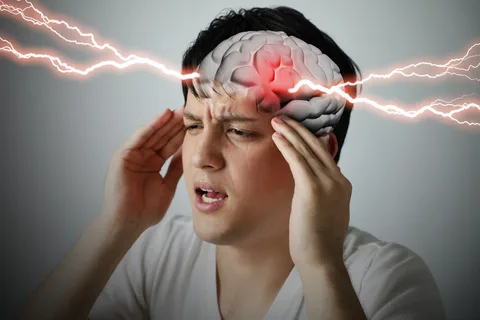Stress-related chronic pain can be an incredibly debilitating condition. It can cause severe discomfort and lead to missed work days, reduced productivity, and a decrease in quality of life. Fortunately, there are practical steps that can be taken to help manage and reduce the symptoms of stress-related chronic pain. In this blog post, we will explore some effective strategies for breaking the cycle of stress-related chronic pain and achieving relief.
What is stress-related chronic pain?
Stress-related chronic pain is a condition where physical pain is directly linked to chronic stress. When a person experiences prolonged stress, their body can respond by developing physical symptoms, including pain. This pain can occur in various parts of the body, such as the back, neck, head, or joints, and can range from mild discomfort to debilitating agony.
The relationship between stress and chronic pain is complex. Chronic stress can cause changes in the body’s physiological responses, such as increased muscle tension, heightened inflammation, and altered pain perception. These changes can lead to the development or exacerbation of chronic pain conditions.
It is important to note that stress-related chronic pain is not simply “all in your head.” The pain experienced by individuals with this condition is very real and can significantly impact their daily lives.
The cycle of stress-related chronic pain is a vicious one. The pain causes stress, which in turn worsens the pain. Breaking this cycle is crucial for finding relief. By understanding the connection between stress and pain and implementing effective coping mechanisms, individuals can start to regain control over their lives and manage their symptoms more effectively.
The link between stress and chronic pain
Stress and chronic pain are closely intertwined, forming a complex relationship that can have a significant impact on our overall well-being. When we experience stress, whether it be from work pressures, personal relationships, or financial worries, our bodies respond by releasing stress hormones like cortisol. While these hormones are essential for short-term survival, prolonged exposure to stress can wreak havoc on our physical health.
Chronic stress can cause a variety of changes in our bodies that contribute to the development or exacerbation of chronic pain. Increased muscle tension is a common physical response to stress, which can lead to muscle aches and stiffness. Stress can also heighten inflammation in the body, leading to conditions like arthritis or migraines. Additionally, chronic stress alters our perception of pain, making it feel more intense and harder to manage.
The link between stress and chronic pain is not purely psychological; it has a physiological basis as well. The connection lies in the body’s stress response system, which activates the release of stress hormones, triggers inflammatory processes, and affects the nervous system’s regulation of pain. This means that addressing the underlying stress is crucial for effectively managing chronic pain.
By understanding this link between stress and chronic pain, individuals can start to take steps toward breaking the cycle. Implementing stress reduction techniques and finding healthy coping mechanisms can help reduce the impact of stress on the body and alleviate chronic pain symptoms. In the following sections, we will explore these strategies in more detail, offering practical tips for relief and a path toward a better quality of life.
Common symptoms of stress-related chronic pain
Common symptoms of stress-related chronic pain can vary from person to person, but there are some common experiences that many individuals with this condition can relate to. One of the most prevalent symptoms is persistent, ongoing pain that lasts for at least three months or longer. This pain can manifest in different parts of the body, such as the back, neck, head, or joints. It may be described as a dull ache, a sharp stabbing sensation, or a constant throbbing.
In addition to physical discomfort, individuals with stress-related chronic pain often experience fatigue and a decrease in energy levels. The constant pain can make it difficult to get a good night’s sleep, leading to feelings of exhaustion and irritability during the day. Many people also report experiencing heightened sensitivity to touch, light, and sound, known as hypersensitivity. This can make everyday activities, like sitting in a chair or walking outside, extremely uncomfortable.
Furthermore, stress-related chronic pain can have a significant impact on mental and emotional well-being. Individuals may feel increased levels of anxiety, depression, or frustration due to the ongoing pain and its interference with daily life. Concentration and focus may be impaired, making it challenging to perform tasks at work or engage in enjoyable activities.
Coping mechanisms for stress-related chronic pain
Coping with stress-related chronic pain can be a daily challenge, but various coping mechanisms can help you manage and alleviate your symptoms. One effective strategy is practicing deep breathing exercises. When you’re feeling stressed or in pain, take a few minutes to focus on your breath. Inhale deeply through your nose, hold it for a few seconds, and then exhale slowly through your mouth. This simple technique can help relax your body and calm your mind, reducing both stress and pain levels.
Another coping mechanism is engaging in regular physical activity. Exercise releases endorphins, which are natural painkillers and mood boosters. Whether it’s going for a walk, doing yoga, or swimming, find an activity that you enjoy and can incorporate into your routine. It doesn’t have to be intense; even light exercise can make a difference in managing stress-related chronic pain.
Finding healthy ways to manage stress is crucial for coping with chronic pain. Consider practicing relaxation techniques such as meditation, mindfulness, or guided imagery. These practices can help you relax your body and mind, reduce stress levels, and ultimately alleviate pain symptoms.
Additionally, it’s important to establish a strong support system. Reach out to friends, family, or a support group who can provide emotional support and understanding. Talking about your experiences and sharing your feelings can help relieve some of the stress and emotional burden that comes with chronic pain.
Finally, make sure to prioritize self-care. Take time for activities that bring you joy and relaxation, such as reading, listening to music, taking a warm bath, or practicing a hobby. Taking care of your emotional well-being is just as important as managing physical pain.
Remember, finding the right coping mechanisms for you may take time and experimentation. Don’t be afraid to try different strategies and seek professional guidance if needed. With persistence and patience, you can find effective coping mechanisms that help you break the cycle of stress-related chronic pain and achieve relief.
Mind-body practices for stress relief and chronic pain management
Engaging in mind-body practices can be incredibly beneficial for managing stress-related chronic pain. These practices focus on the connection between the mind and body and can help reduce stress, alleviate pain, and promote overall well-being. One effective mind-body practice is meditation. Taking a few minutes each day to sit quietly, focus on your breath, and clear your mind can help reduce stress levels and promote relaxation. You can also try incorporating mindfulness into your daily routine. This involves paying attention to the present moment without judgment, which can help you become more aware of your body and its sensations. Other mind-body practices that may be helpful include yoga, tai chi, and guided imagery. These practices combine movement, breathing, and visualization techniques to promote relaxation, reduce muscle tension, and improve overall mental and physical well-being. Experiment with different mind-body practices to find what works best for you and integrate them into your daily routine. Remember, consistency is key, so try to make these practices a regular part of your life to reap the benefits of managing stress-related chronic pain.
The importance of a healthy lifestyle in managing stress-related chronic pain
A healthy lifestyle is a key component in effectively managing stress-related chronic pain. When you prioritize your overall well-being, you can significantly reduce the impact of stress on your body and alleviate chronic pain symptoms.
One crucial aspect of a healthy lifestyle is maintaining a balanced diet. Consuming nutrient-rich foods, such as fruits, vegetables, lean proteins, and whole grains, can provide your body with the necessary vitamins and minerals to support optimal functioning. It is also important to avoid or limit foods that can contribute to inflammation, such as processed foods, sugary snacks, and high-fat meals.
Regular exercise is another essential component of a healthy lifestyle. Engaging in physical activity can help release endorphins, which act as natural painkillers and mood boosters. Whether it’s going for a walk, practicing yoga, or participating in a low-impact exercise class, finding activities that you enjoy and can incorporate into your routine is key.
Adequate sleep is also vital for managing stress-related chronic pain. Aim for 7-9 hours of quality sleep each night. Establishing a bedtime routine, creating a relaxing sleep environment, and practicing good sleep hygiene can contribute to better sleep quality.
Lastly, managing stress through relaxation techniques and self-care practices is crucial for a healthy lifestyle. Whether it’s practicing mindfulness, engaging in hobbies you enjoy, or seeking support from a therapist or support group, finding healthy ways to cope with stress can significantly impact your overall well-being and reduce chronic pain symptoms.
Seeking professional help for stress-related chronic pain
Seeking professional help is a crucial step in managing stress-related chronic pain. While self-care strategies and coping mechanisms can be effective, there may come a time when you need additional support and guidance from a healthcare professional. Here are some reasons why seeking professional help is important:
- Accurate diagnosis: A healthcare professional, such as a doctor or a specialist, can help determine the root cause of your chronic pain. They will be able to evaluate your symptoms, conduct appropriate tests, and provide an accurate diagnosis. This is important for developing an effective treatment plan tailored to your specific needs.
- Treatment options: Healthcare professionals have extensive knowledge of different treatment options available for stress-related chronic pain. They can recommend a range of interventions, such as physical therapy, medication, alternative therapies, or cognitive-behavioral therapy. A professional can guide you through the pros and cons of each option and help you make informed decisions about your treatment.
- Emotional support: Dealing with chronic pain can take a toll on your mental and emotional well-being. A healthcare professional can provide emotional support, listen to your concerns, and offer guidance on managing the emotional impact of chronic pain. They may also refer you to a therapist or support group that specializes in chronic pain management.
- Ongoing monitoring: A healthcare professional can monitor your progress over time and make adjustments to your treatment plan as needed. They can provide regular check-ins, assess your response to treatment, and make recommendations for any necessary changes. This ongoing support is important for ensuring that you continue to effectively manage your stress-related chronic pain.
Final thoughts and encouragement to break the cycle of stress-related chronic pain.
Living with stress-related chronic pain can feel overwhelming and discouraging at times, but it’s important to remember that you have the power to break the cycle and find relief. By implementing the strategies and coping mechanisms discussed in this blog post, you can take significant steps toward managing your symptoms and improving your quality of life.
It’s important to approach this journey with patience and self-compassion. Breaking the cycle of stress-related chronic pain takes time, and what works for one person may not work for another. Don’t be discouraged if you don’t see immediate results – small changes and consistent effort can make a big difference.
Remember to prioritize self-care and make time for activities that bring you joy and relaxation. Surround yourself with a strong support system of friends, family, and healthcare professionals who can provide understanding and guidance along the way.
Most importantly, believe in yourself and your ability to overcome the challenges of stress-related chronic pain. You are stronger than you think, and with persistence and determination, you can find relief and break free from the grip of chronic pain.



